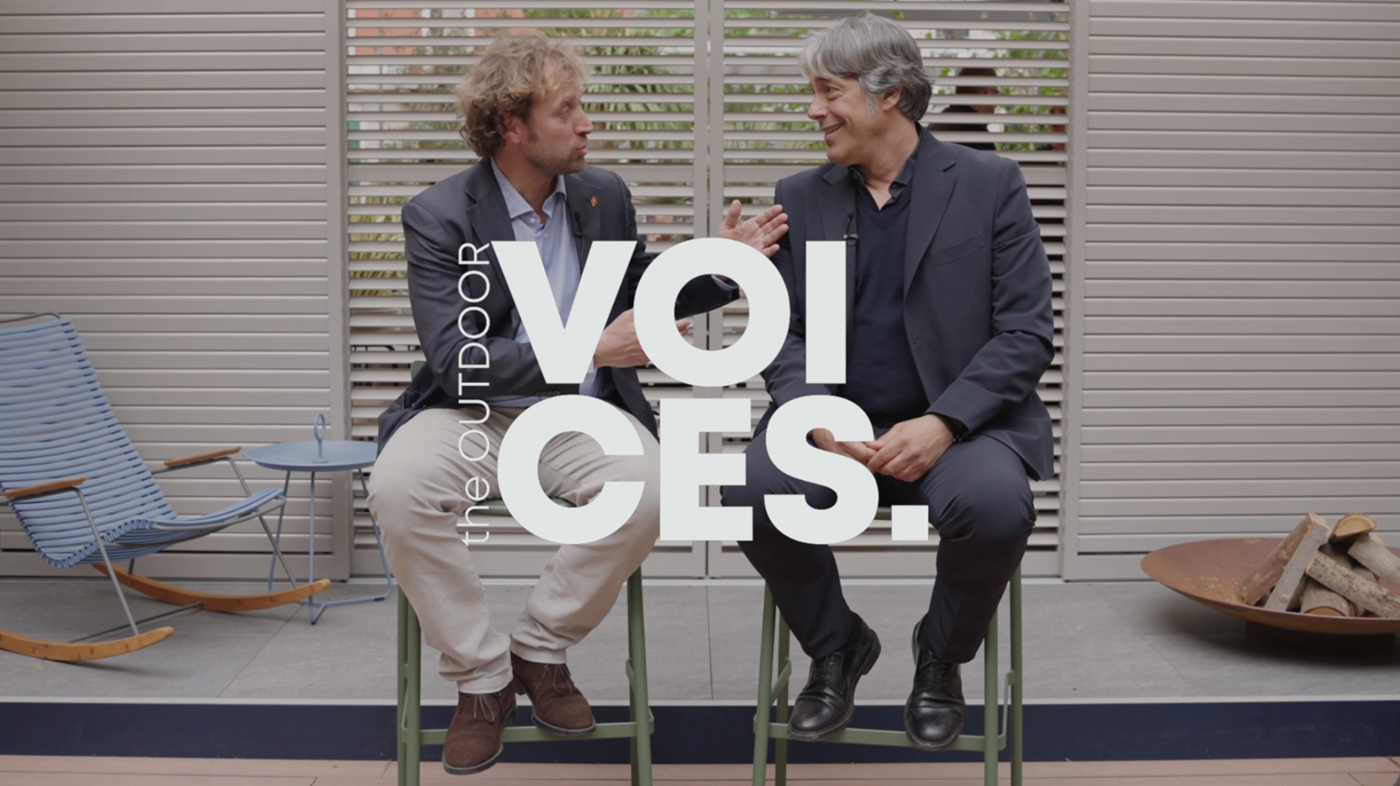News and Events
The Outdoor Voices: Exploring Spaces and Identities with Gianfelice Facchetti

“For me, the outdoors means everything that is outside, external, or foreign,” Facchetti begins, “regardless of whether we’re talking about people, places, or identity. You only need to take half a step outside your front door to find yourself immersed within that context.” It’s an environment that’s different from our own. One that’s made up not only of objects and natural elements, but also of people with whom to experience it... even if the dynamics are not always ideal: “there is a lack of inclination to familiarise ourselves with the places we inhabit, as well as those we visit. During the pandemic,” the actor recalls, “we all found ourselves surrounded by certain habits and customs, which were sometimes even a bit unrefined: what was revealed was a somewhat absent-minded version of humanity, which sometimes even manifested itself through rude actions, routines, and ways of interacting with the outdoors and our neighbours.
The outdoors is also a place where human tribal behaviour can manifest itself: one of the best examples of this is at the stadium, where certain rules can be suspended, and rivalries can emerge, but within a context where entertainment and safety are still guaranteed. In this regard, the stadium becomes an arena in which primordial human dynamics are ritualised, but without impinging upon the harmony of the external context.
This reflection on the outdoors then shifted to the concept of the theatre as Outdoors, not only in terms of outdoor performances, but also in terms of the transport and displacement effect that theatre can have on the individual. According to Gianfelice Facchetti, the theatre should be capable of taking us by the hand, transporting us, and helping us imagine better worlds and new possibilities. In an age overwhelmed by reality, the theatre can serve as a refuge for the realm of dreams and the imagination.
From relations between human beings, Tartaro then shifted the focus to the topic of human cohabitation with other species.
“In addition to human life, you are also very conscious of animal life. Man is part of the animal kingdom, right? Out of all the articles you’ve written, I remember several fantastic ones about certain types of birds in Milan, with whom we share the outdoors, sometimes even unknowingly; this serves as a reminder that this outdoor space does not only belong to man alone... it belongs to everyone.”
“It is an outdoor space in which we have to coexist, and our goal today is certainly to occupy the best spaces,” explains Facchetti. We both have the right. The difference is that an animal cannot choose... it does not have the awareness and knowledge to choose to go elsewhere. For an animal, a place is a part of its identity. It totally coincides with the animal’s nature.”
While animals cannot choose where they belong, humans have the cultural ability to co-exist with other species, thus ensuring a future of cohabitation. This awareness is fundamental to preserving identity, and ensuring respect for the environment in which we live.
“Our nature is cultural: by examining it more closely, mankind is able to understand how to co-exist with other species, and this is the best way to guarantee our future”.
The episode with Gianfelice Facchetti was a fascinating one, inviting us to explore outdoor spaces, identities, and connections with the animal kingdom. From the arena to the stadium, and the outdoor theatre to the imagination, we explored new perspectives, discovering how the Outdoors is a shared environment, one which demands respect and awareness. And it is precisely this awareness that gives us hope for a future in which man and nature will co-exist in harmony.
